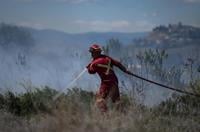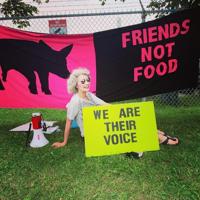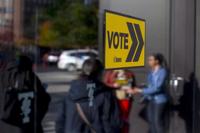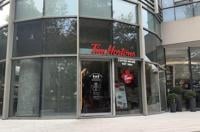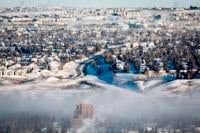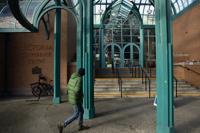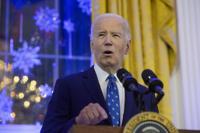VANCOUVER - A heat wave that is expected to last most of next week has prompted British Columbia's government to warn people to prepare for sweltering conditions, but a repeat of the deadly 2021 heat dome isn't being forecast.
The hot weather starting Sunday is expected to send temperatures into the high 30s in the province's south, after recent cooler weather and rain helped wildfire suppression efforts, Emergency Management Minister Bowinn Ma said Thursday.
The heat is expected to dry out forests again, increase fire risks, and worsen the province's already severe drought levels, she said.
"While these elevated temperatures may pose risks, I do want to assure everyone that this upcoming heat event is not expected to be as extreme as the event that we faced in June and July of 2021," Ma said at a news conference.
"Nevertheless, it is critical that people understand the risks, prepare for the conditions and know where to access support," she said.
A review by the BC Coroners Service said temperatures in parts of B.C. surpassed 40 C for days during the 2021 heat-dome event, resulting in 619 heat-related deaths, most of them among elderly and vulnerable people in buildings without air conditioning.
The report said 98 per cent of those who died were indoors and most victims "lived in socially or materially deprived neighbourhoods."
Ma said a heat dome isn't being forecast this time because days are shorter and nights longer in mid-August. However, cooling centres will be open and residents should take precautions to stay out of the heat, drink water and limit activity.
"We are following the B.C. heat alert and response plan and that means that government's health authorities, hospitals and community care sites are taking actions to prepare for the potential heat to keep people safe," said Ma.
Provincial health officer Dr. Bonnie Henry said the hot weather forecast has health officials making preparations, and individuals should be doing the same.
"The message today is about preparation," she said. "We can take care of each other."
Ma urged people to be aware of rising temperatures in their homes and seek out cooling centres.
Children or pets should not be left in vehicles, she said.
"When there is a heat event, we need everyone to take steps to keep themselves and their loved ones safe," said Ma. "Let's take care of one another, check in on your loved ones and your neighbours, especially those who are vulnerable."
She said B.C.'s drought continues to be serious, with some forecasts suggesting the situation could continue until next year.
"This level of extreme drought has never been seen in this province before," Ma said. "It is quite unprecedented."
She said more than 80 per cent of B.C.'s water basins are listed as level 4 or 5 drought conditions.
Level 4 means adverse ecosystem and socio-economic impacts are likely, with conservation and local water restrictions in response. Level 5 means adverse socio-economic and ecosystem impacts are almost certain and an emergency response is possible.
Ma said the drought has reached the point where the government has plans to transport water to communities in need if required.
"We are largely building the ship as we are sailing it," she said.
Forests Minister Bruce Ralston said the above-average temperatures will quickly dry out watersheds dampened by recent rainfall.
He urged continued water conservation, saying his ministry is prepared to take regulatory action if too much water is being used.
Ralston said 660 people remain on wildfire evacuation order, while about 4,000 people are on alert, with most living in central and southeastern B.C.
Since April, more than 1,700 wildfires have burned about 16,000 square kilometres, he said.
The BC Wildfire Service said crews are keeping close watch on the backcountry after recent lightning storms raised the potential for smouldering fires to erupt as the hot spell arrives this weekend.
Less than five millimetres of rain fell in parts of southern and southeastern B.C., where wildfire danger ranges from moderate to extreme, and several blazes have resulted in evacuations or evacuation alerts.
That includes two separate, nearly month-old wildfires on the east and west sides of Adams Lake, north of Chase, but the Wildfire Service said although evacuation orders from both fires still cover about 100 properties, power has now been restored to the evacuated area on the east side of the lake.
West of Lillooet, evacuation orders have ended for the Seton Portage and Shalath areas along Anderson and Seton lakes as crews make headway on the 46-square-kilometre Casper Creek wildfire, which has destroyed one property since it was sparked on July 11.
In northern B.C., heavy rain means the nearly 6,000-square-kilometre Donnie Creek blaze, the province's largest-ever wildfire, is no longer listed as a fire of note, but the wildfire service said it remains ranked as out of control.
It's one of roughly 400 fires burning across B.C., including about 200 considered by the wildfire service to be out of control, while 12, such as the fires at Adams Lake and west of Lillooet, are listed as fires of note, meaning they remain threatening or highly visible.
This report by ºÚÁϳԹÏÍø was first published Aug. 10, 2023.


